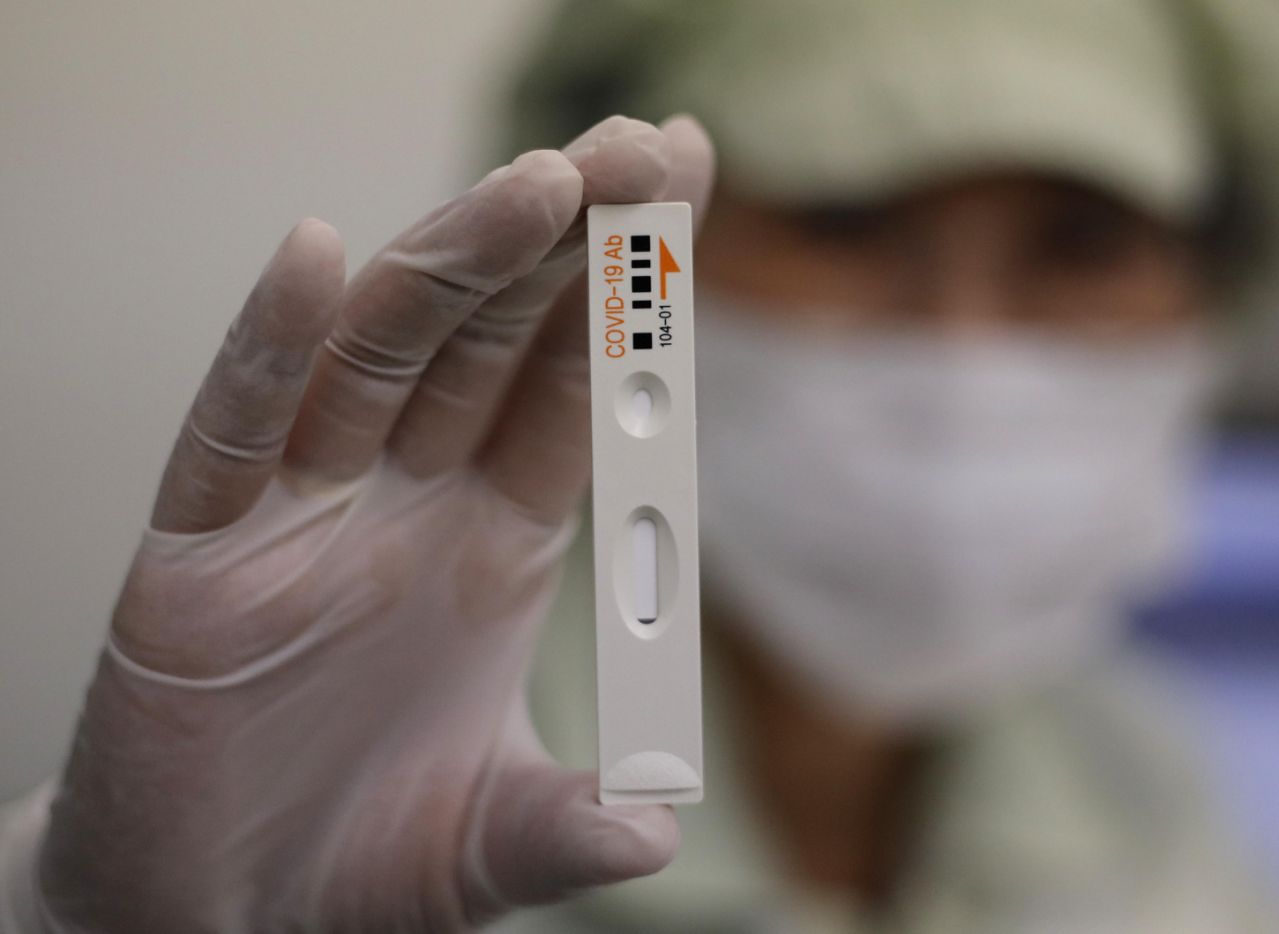As U.S. states begin lifting stay-at-home orders, one idea that has been floated to speed up the return to normal life is to issue “immunity passports” to people who test positive for antibodies to the coronavirus, which causes COVID-19.
To accurately assess how many people have antibodies to the virus, indicating they were infected at some time in the past, tens of millions of tests will need to be administered. But while more than 120 antibody tests are currently available, only a handful have been validated by the Food and Drug Administration; the great majority have received emergency use authorization, relying on the manufacturer to certify their accuracy.
A new study by researchers at the University of California has found that many of the tests currently in use give an alarmingly high number of false positive results.
“Some people have suggested issuing immunity passports and I don’t think that any of these tests can be used to interpret that,” Patrick Hsu, a UC Berkeley microbiologist and one of the lead authors of the study, told Yahoo News. “There’s a lot of basic research that’s being done all over the world to try to understand how the presence and the levels of these antibodies correlate to a protective immune response.”
Tests for the presence of antibodies in the blood are an important tool to determine the extent of the virus’s spread. They are different from the nasal swab tests used to detect an ongoing infection. The accuracy of those tests can be variable more than a week after the onset of symptoms, Hsu said, whereas “if you develop antibodies a week out after infection, you can get a much more reliable antibody result.”
In theory, learning what percentage of a hospital workforce, for example, tested positive for antibodies could provide a measure of reassurance for their colleagues.
In response to a viral infection, the immune system produces cells to attack the virus and antibodies that bind to it and prevent it from replicating. This process, depending on multiple factors, can result in cellular immunity and can help people ward off the worst symptoms of a disease like COVID-19. While antibodies to other pathogens can prevent reinfection, there is no evidence yet that those to the coronavirus are protective in that way.
“There is currently no evidence that people who have recovered from COVID-19 and have antibodies are protected from a second infection,” the World Health Organization said in a summary of ongoing research on COVID-19 antibodies that was released last week.
Any passport or certification system would be based on the premise that people with antibodies are at little risk of reinfection, but the WHO, which has been monitoring the evidence that antibodies confer immunity from a given strain, has so far not seen that theory borne out.
“Most of these studies show that people who have recovered from infection have antibodies to the virus. However, some of these people have very low levels of neutralizing antibodies in their blood, suggesting that cellular immunity may also be critical for recovery,” the WHO wrote in the summary. “As of 24 Ap



